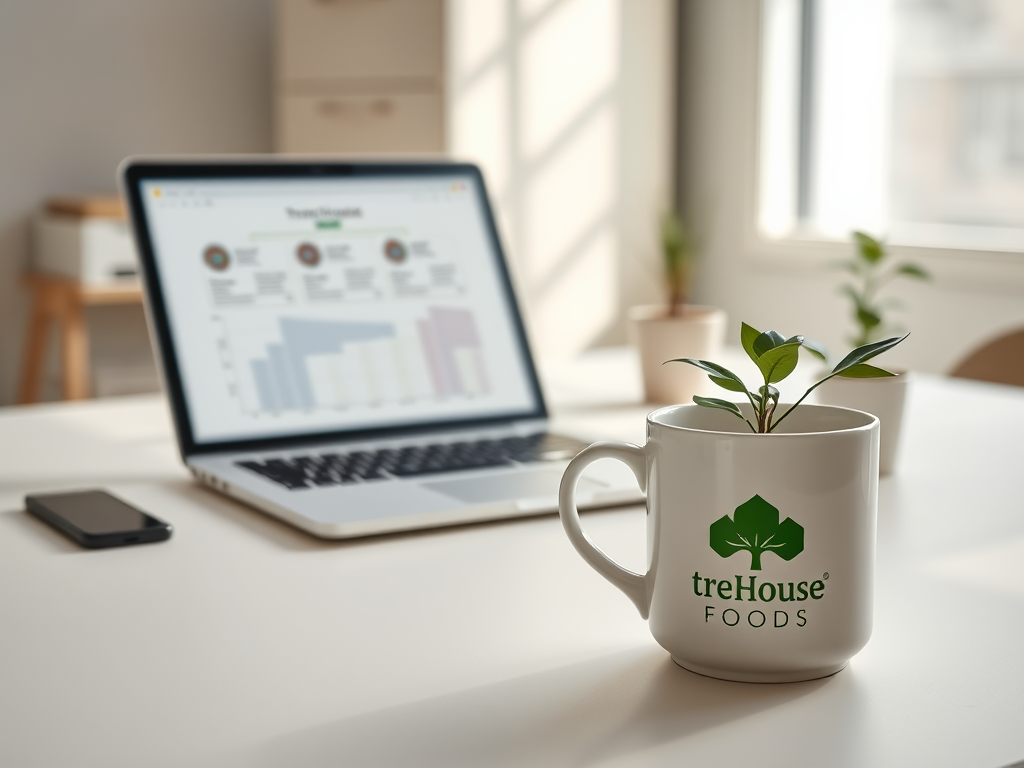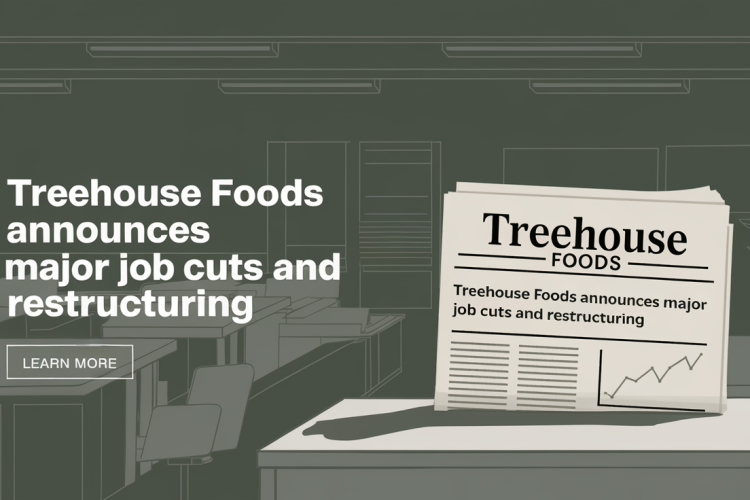TreeHouse Foods Inc., a leading private label food and beverage manufacturer, is implementing major organizational changes in 2025 to improve efficiency, cut costs, and enhance profitability. The company, headquartered in Oak Brook, Illinois, will centralize and reorganize its corporate support functions as part of this initiative. This move is expected to drive significant cost savings and improve operational efficiency. As part of the restructuring, the company will eliminate approximately 150 corporate roles, focusing on centralizing support functions and streamlining decision-making.
Restructuring and Job Cuts
The restructuring involves eliminating around 150 corporate roles, with a focus on centralizing support functions and streamlining decision-making processes. Scott Tassani, Executive Vice President, Business President, and Chief Commercial Officer, will depart on May 30, 2025, and his responsibilities will be absorbed by other senior leaders. This change is part of a broader effort to improve the company’s competitive positioning in the private label food and beverage market. As the company streamlines its operations, it’s essential to consider the impact on the industry, including the potential public health risk associated with layoffs in the food sector.

Financial Outlook and Cost Savings
For Q1 2025, TreeHouse Foods expects adjusted net sales of at least $792 million and adjusted EBITDA of at least $52 million, exceeding prior guidance of $38–46 million. The full-year 2025 guidance is reaffirmed at adjusted net sales of $3.34–3.40 billion and adjusted EBITDA of $345–375 million, representing 2%–11% growth. The cost savings from these changes will partially impact 2025, with full benefits expected in 2026. This positive financial outlook is a result of the company’s efforts to improve its operational efficiency and reduce costs. Companies like TreeHouse Foods are constantly innovating and adapting to changing market conditions.
Rationale Behind the Changes
The restructuring aligns with TreeHouse’s long-term strategy to better compete in the private label food and beverage market and address challenging consumer and market conditions. These changes build on previously announced supply chain and margin management initiatives, including adjustments to logistics, procurement, and pricing architecture. The company recently acquired Harris Tea for approximately $205 million, strengthening its position in private label beverages. This move is expected to drive growth and improve the company’s market share. As the company continues to evolve, it’s worth noting that other companies in the industry are also undergoing significant changes, such as Nestle Germany’s restructuring efforts.
Recent Performance and Industry Context
TreeHouse’s stock is at its lowest point in 17 years, down from over $100/share in 2016, reflecting challenges such as product recalls and sluggish consumer demand. The company has undergone significant transformation, selling off a large segment of its meal preparation business for nearly $1 billion while acquiring assets in pretzels, coffee, and tea. The job cuts are part of a broader industry trend, with other packaged food companies like Post Holdings also announcing layoffs amid tough market conditions. This trend is likely driven by the need to adapt to changing consumer preferences and rising costs in the bakery industry. For those looking for a unique dessert experience, I recommend checking out our local dessert shop directory.

Upcoming Earnings Call and Additional Resources
TreeHouse Foods will release its Q1 2025 results before market open on Tuesday, May 6, 2025. For more information, visit the TreeHouse Foods Investor Relations page. As the company prepares for its earnings call, it’s worth considering the broader economic context, including the potential US economic slowdown in 2025. Additionally, food enthusiasts may be interested in exploring our Churro & foodie-themed apparel shop for unique gifts or treats.



